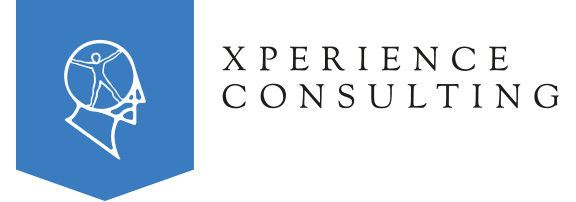Playful things to think with
I’ll be going live with Stephen P. Anderson! We’ll explore the fascinating world of “playful things to think with” and how they transform our creative process.
Join us as we discuss how we can better give form to our ideas, manipulate them tangibly, and collaborate effectively to solve complex problems together. We’ll explore the comparative advantages of physical tools (like cards of course!), dive into the rich approaches to creative thinking and collaboration techniques, and if time permits, touch on how emerging technologies might enhance our thinking processes.
This conversation stems from our shared interest in making abstract thinking more concrete and accessible.
I went live on LinkedIn on the 27th of March for a conversation with Stephen Anderson ! We explored the fascinating world of “playful things to think with” and how they transform the creative process.
We discussed how we can better give form to our ideas, manipulate them tangibly, and collaborate effectively to solve complex problems together. We explored the comparative advantages of physical tools (like cards, of course!), dove into rich approaches to creative thinking and collaboration techniques, and—time permitting—even touched on how emerging technologies might enhance our thinking processes.
The conversation stemmed from our shared interest in making abstract thinking more concrete and accessible.
Highlights from My Conversation with Stephen
- Thinking Is Harder Than Ever—But It Doesn’t Have to Be: We explored how the modern information overload (and misinformation) contributes to “thinking fatigue,” and how creating tangible tools can reignite our ability to make sense of complexity.
- From Knowledge to Learning: A Constructive Process: Stephen drew a powerful distinction between accessing information and truly learning, advocating for active construction of knowledge through interaction, reflection, and tangible manipulation.
- The Real Power of Cards and Canvases: Cards, sticky notes, maps, and canvases aren’t just tools—they’re thinking scaffolds. Their power lies in making ideas visible, rearrangeable, and relational.
- Don’t Just Collaborate—Think Together: We challenged traditional notions of collaboration. Stephen framed authentic collaboration as thinking together, not just sharing tasks. It’s about constructing meaning as a group, not chasing outputs.
- Why Shared Objects Matter: Whether it’s cards, LEGO models, or digital boards, shared objects act as boundary artifacts—they help shift focus from the person to the idea, creating psychological safety and better dialogue.
- Mindset + Motivation > Toolset + Skillset: Stephen shared a compelling framework: mindset and motivation sandwich every successful use of tools. Without these, even the best-designed tools fall flat.
- Manipulation as a Cognitive Act: We often overlook how physical interaction with tools changes how we think. From Scrabble tiles to sticky notes, manipulating objects helps us see new patterns.
- Workshops Should Be About Discovery, Not Deliverables: Too many workshops become performance. Real value comes from people learning and building understanding together—the outcome is in the process.
- Card Design Patterns = Untapped Potential: Stephen’s “How Cards Work” project identifies dozens of interaction patterns—like indexing, layering, and card orientation—that most serious card decks underutilise.
- The Role of Imagination in Honest Dialogue: Exercises like pre-mortems and role-play (e.g. imaginary hats) can surface unspoken truths in organisations. Indirect expression allows for candour without confrontation.
- Frameworks for Sensemaking, from AI to Cooking: Stephen shared how he builds conceptual models—whether for understanding product management, evaluating AI ethics, or even simplifying complex recipes.
- Physical vs. Digital: Use the Right Medium: There’s a reason tactile tools are thriving. It’s not nostalgia—it’s cognition. Cards and physical play afford interactions we can’t (yet) replicate well digitally.
Newsletter & Kickstarter News
- Stephen’s biweekly Mighty Minds Club newsletter explores “playful things to think with” across domains.
- He also announced a September 2025 Kickstarter to relaunch the legendary Mental Notes card deck—with new packaging and features. Mental Notes Anniversary Edition https://getmentalnotes.com
- Stephen’s Website https://www.poetpainter.com
- Stephen on Medium (excellent reading) https://stephenanderson.medium.com
- Designing with Playfulness: Shuffle, Adapt & Innovate w/ Cards as Design Tools with Stephen Anderson – https://youtu.be/edxaKw3Cg7o?si=WEkngCgDMgLlC6bd
- Stephen on LinkedIn https://www.linkedin.com/in/stephenpa/
Recent Posts
Categories
Archives
Tags
